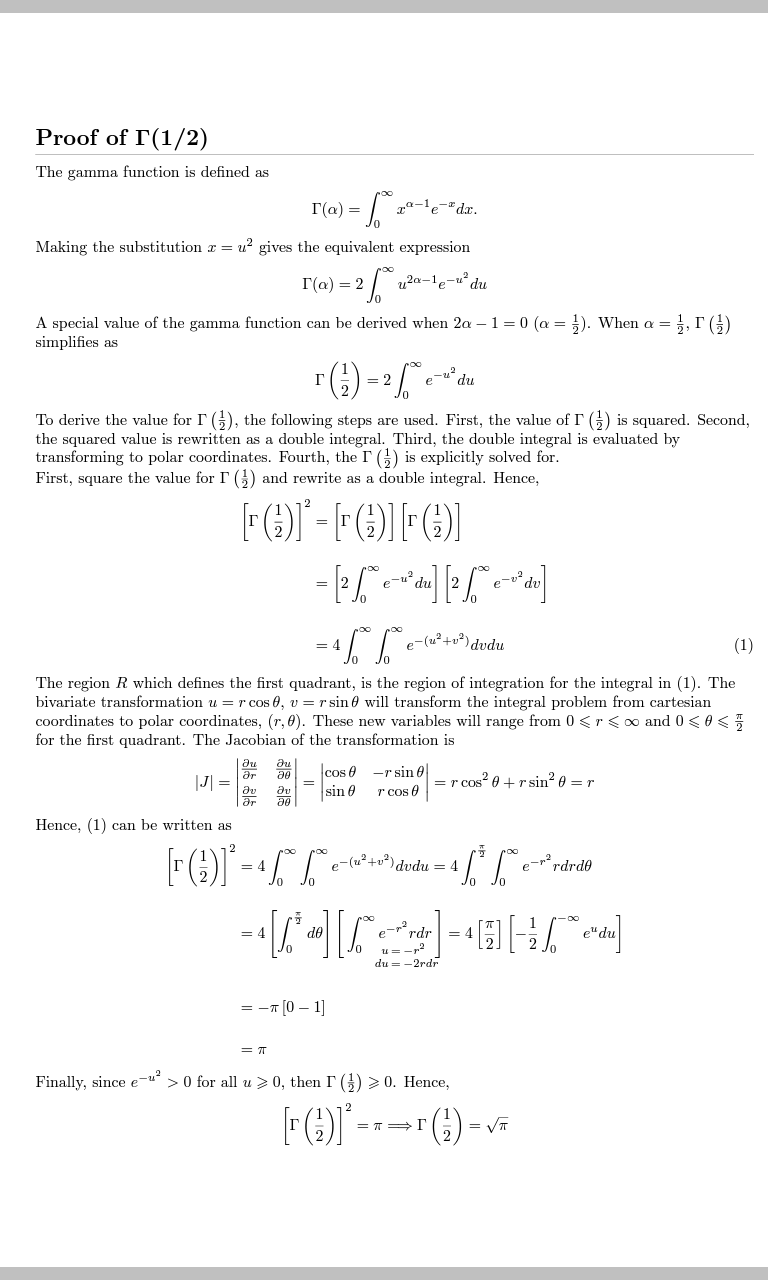0.5! ......
What is the value of ( 2 1 ) ! ?
Notation: ! denotes the factorial notation . For example 8 ! = 1 × 2 × 3 × 4 × 5 × 6 × 7 × 8 .
This section requires Javascript.
You are seeing this because something didn't load right. We suggest you, (a) try
refreshing the page, (b) enabling javascript if it is disabled on your browser and,
finally, (c)
loading the
non-javascript version of this page
. We're sorry about the hassle.
4 solutions
Would there be a way to estimate the answer without using the gamma function?
Log in to reply
Not that I know of. Gamma function was devised by Euler to extent the discreet factorial to the continuous. In my opinion one of the greatest contribution by Euler.
Factorials are actually only defined for integers more than or equal to 0 so technically it should be "not possible",but , the gamma function which is the "extension" to factorials yields 2 π . A little bit misleading though!
 we know, Γ(n+1) = n Γ(n)
we know, Γ(n+1) = n Γ(n)
if n = 1/2
Γ(3/2) = Γ(1/2)/2
=> Γ(3/2) = √π/2
=> (1/2)! = √π/2
cliché..
= = = ≈ ( 2 1 ) ! Π ( 2 1 ) ∫ 0 ∞ t 1 / 2 e − t d t 2 π 0 . 8 8 6 2 2 6 9 . . .
The gamma function serves as an extension of the factorial function beyond the non-negative integer. And one of the functional equations is Γ ( s ) = ( s − 1 ) ! . Therefore,
( 2 1 ) ! = Γ ( 2 3 ) = 2 1 Γ ( 2 1 ) = 2 π = 0 . 8 8 6 2 2 6 9 . . . Using the identity: Γ ( s + 1 ) = s Γ ( s ) Note that Γ ( 2 1 ) = π